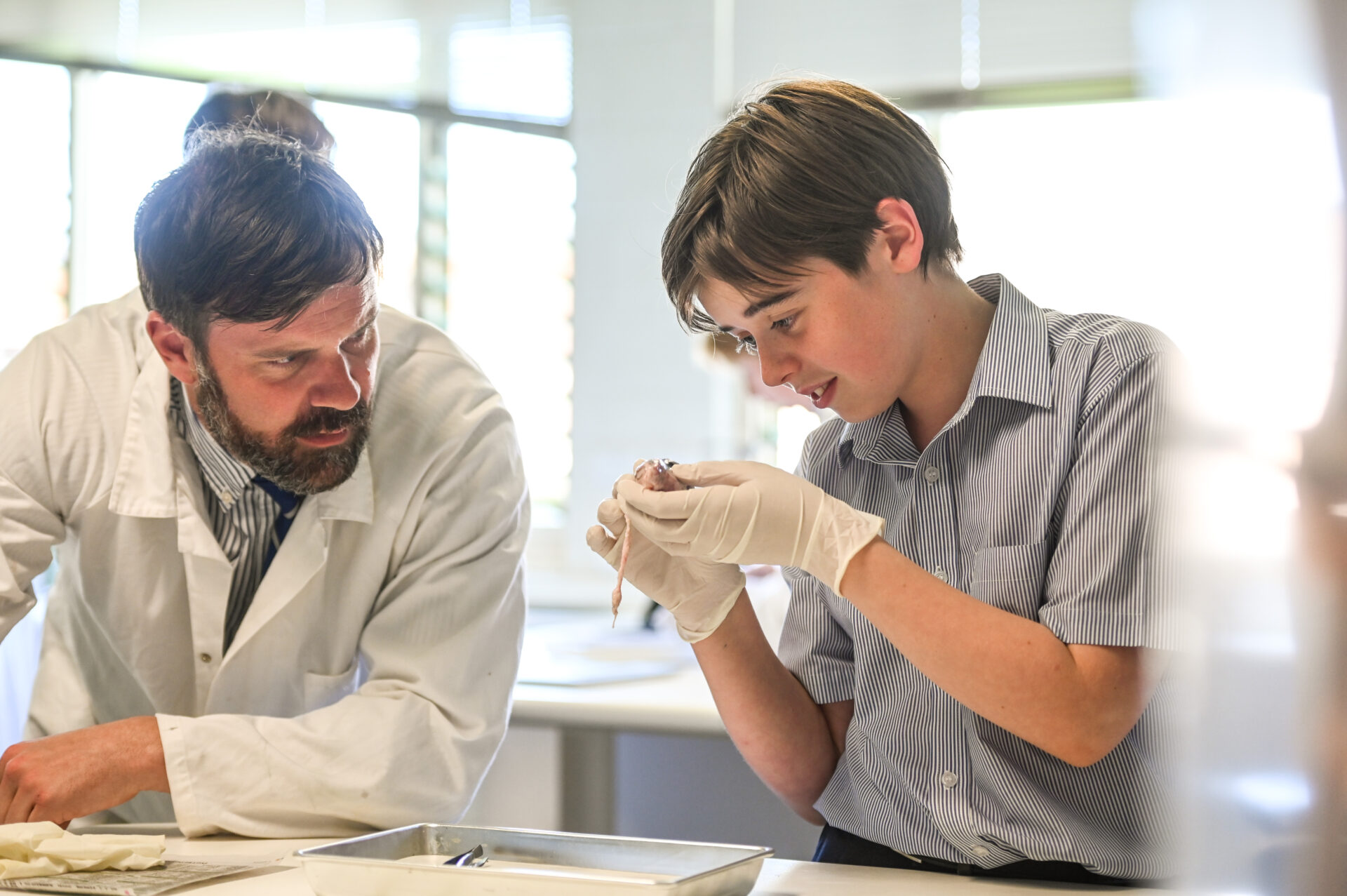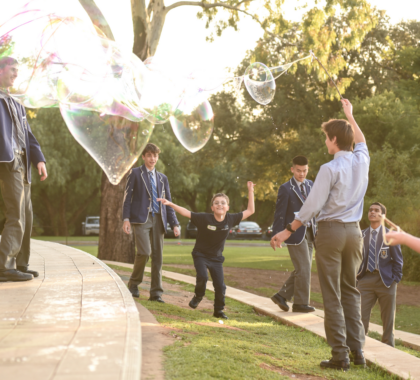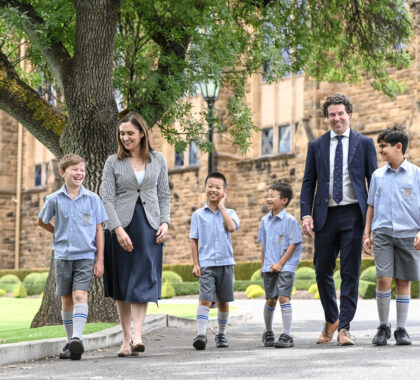To provide an experience that is both engaging and challenging for each student, we work with boys to understand their abilities, motivations, attitudes and goals. Understanding these unique features enables our teachers to make the learning experience more interesting, dynamic and personal.
Our curriculum is liberal, broad and designed to meet the demands of a contemporary society. An innovative, engaging and positive approach to learning and teaching inspires enthusiasm and provides a strong foundation for lifelong learning.
We want every student to commit to being a creative, openminded, life-long learner who can use failure as a tool for growth.
Importantly, every student is responsible for his own learning. Teachers work with every student to enable him to show independence of thought, develop intellectual tenacity and to understand himself as a learner.
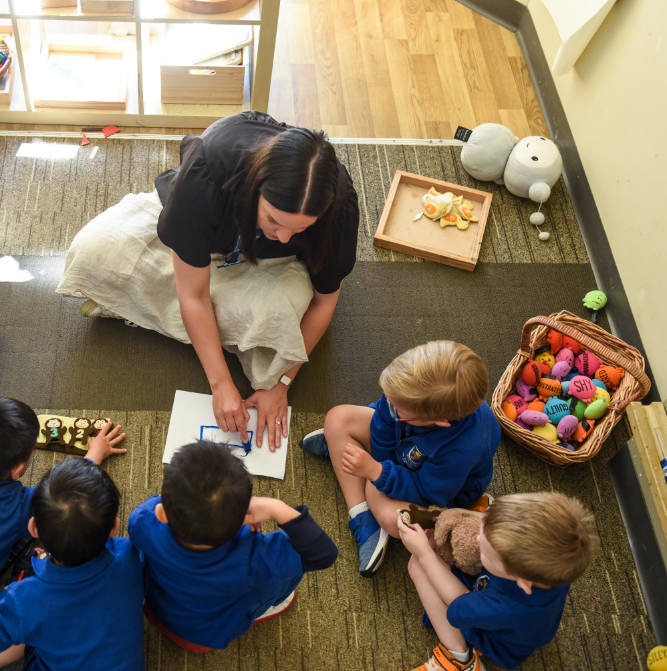
Early Years Curriculum
The Early Years Program curriculum has been developed using the ‘Belonging, Being and Becoming: The Early Years Learning Framework for Australia’, developed by the Australian Government and our centre has been recognised for exceeding standards in all areas assessed under the National Quality Framework and Standards.
Our educators plan for learning and respond to teachable moments based on their observations and understanding of children’s learning and development. The Early Years Program is also influenced by the principles of Reggio Emilia as well as the School’s Positive Education and Wellbeing programs.
Junior Years Curriculum
Junior Years students learn in stimulating classrooms in which boys and teachers are supported by modern technology. Learning is adapted for each stage of a child’s development, and literacy and numeracy are high priorities.
The curriculum caters for the diverse academic, social, emotional, physical and spiritual needs of our students. It enables the attainment of academic success while also providing flexibility to cater for the wide range of abilities and interests within a class group.
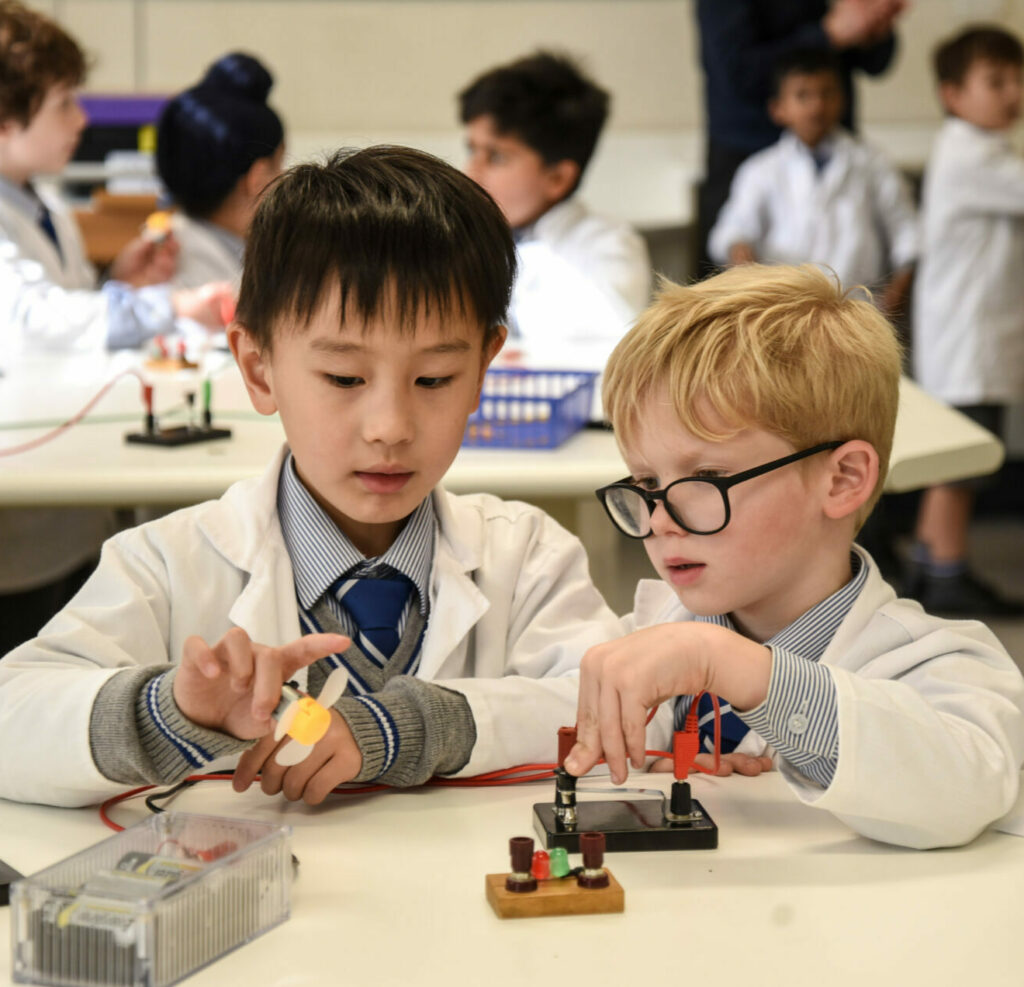
All students in the Junior School are encouraged to:
- Develop their academic, intellectual, social, emotional, spiritual and physical abilities.
- Think critically and creatively.
- Develop a life-long enthusiasm and love of learning.
- Demonstrate respect, courtesy and compassion towards others.
- Show initiative and develop qualities of leadership within the School and wider community.
- Make morally informed decisions derived from exposure to a variety of ideas and opinions.
- Develop a global perspective and the ability to adapt to change.
Special attention is given to the essential skills in numeracy and literacy at all levels and in all areas of the curriculum, with learning tasks differentiated for readiness, interest and learning profile. The ability of the students to communicate with others competently and correctly, in both oral and written language, is of major importance. Classroom programs and organisation enables students to develop independent and collaborative work habits. They learn to work together, sharing ideas and solving problems in a caring, supportive environment. Students are also encouraged to keep physically fit and live a balanced life.
Our curriculum, our teaching strategies, our assessment and reporting and our day to day interactions with others model and reflect this. Our curriculum aims to develop our students to:
- Be self-directed
- Seek to improve
- Know that making mistakes leads to learning
- Be curious
- Connect their learning
- Demonstrate positivity
- Have a growth mindset
- Take risks
- Aspire to challenge
- Demonstrate diligence
- Be ready and willing to learn
- Be open-minded
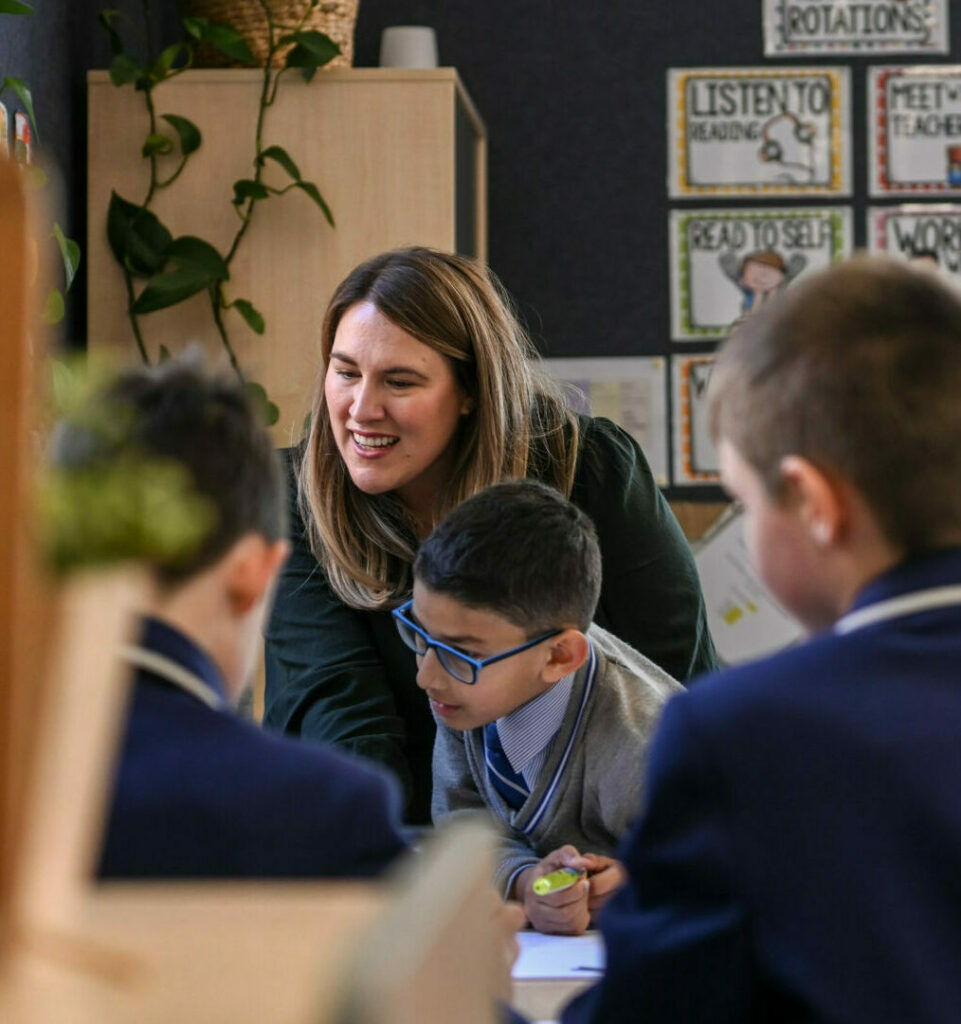
Senior Years Curriculum
From Years 7 to 12, students are challenged, inspired and nurtured through both a rich and diverse curriculum and through evidence-based, innovative teaching. Opportunities are provided for students to come to know the world through different perspectives, represented by subjects within eight faculties:
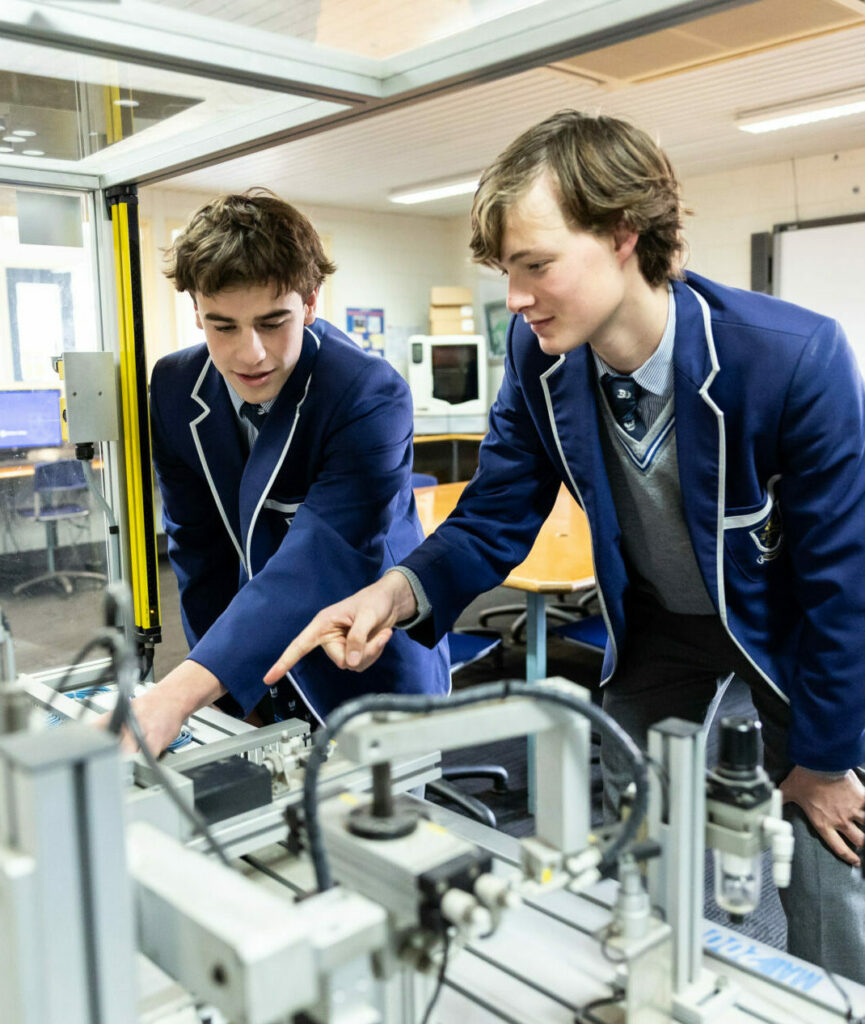
- The Arts (Visual and Performing)
- English
- Personal Development (Health and Physical – Education, Religious and Values Education, Wellbeing)
- Humanities
- Languages (including English as an additional language)
- Mathematics
- Science
- Technology
Our teaching staff offer a robust academic program, delivering a curriculum incorporating the latest learning competencies and success skills, such as real-world problem solving, collaboration, self-regulation, skilled communication and purposeful application of technology.
Catering to Diverse Learning Needs
All students are different and learn differently. Curriculum content or speed of lesson presentation is varied to reflect the particular needs of a class group. Subject teacher planning is flexible in recognising the needs of all students as individuals and ensuring progression and relevance. However, students whose needs are truly exceptional require enhanced provisions to enable them to fulfil their potential.
There are provisions made across the School for both enrichment and reinforcement in the curriculum. Students who have a diagnosed learning disability or difficulty may be eligible for Curriculum Support which provides support through several methods. Students may be on an Individual Learning Plan or be provided with in class support. Students who require more intensive support may meet the criteria to be eligible for Curriculum Support Class (Years 7 to 10). These classes are smaller and allow for more individual attention.
Students who are recognised as being highly able will have access to a wide range of enrichment opportunities. Beyond acceleration, some subjects feature streamed classes and many electives are tailored to students who are particularly able in certain areas. Faculties and the Diverse Learning Needs team may identify and work in different ways with truly exceptional learners in an effort to challenge them beyond the school, state and national standards.
Challenging Your Son Academically
St Peter’s College teachers work hard to support and challenge boys throughout their academic journey. For students who feel they are hitting ‘curriculum ceilings’ in their learning here’s a list of ways they can continue to stretch themselves intellectually.
Maths@SPSC is a whole-school program dedicated to enriching Maths learning at SPSC; students access a range of learning opportunities that sit outside traditional Maths curricula.
Students compete in various academic competitions to challenge themselves and to benchmark their skills and understanding against local, interstate and international students. SPSC supports appropriate learners through competitions like the IPSHA Poetry Competition and Oxford University Computing Challenge in the Junior School, and various Mathematics and Science Olympiads in the Senior School.
The Social Enterprise Funding Program funds and mentors students who wish to extend themselves by transferring their learning into social enterprise.
The Micro Credentials Program resources passionate learners from Years 6 to 12 who wish to extend themselves technically or intellectually; students are enrolled in relevant university short courses and mentored through their credential completion. Boys select their own short courses or decide on one through a counselling process with the Academic Office.
Where possible and appropriate, all SPSC teachers seek to differentiate within their classroom according to interest, ability and learner profile so that all students’ learning experiences are engaging, meaningful and challenging.
Clubs and curriculum societies allow boys to connect with passionate learners and teachers across the School in a particular subject area; they meet regularly to enjoy a range of relevant activities and projects. Examples include the Historical Society, the Japanese Society, Art and Pottery clubs and the Digital Art Society.
All students from Year 7 are placed in appropriately challenging Maths levels based on a range of relevant data, including recent academic achievement and external ability metrics.
Maths set acceleration allows learners from Year 7 to 10 to complete subsequent years’ Maths courses ahead of time, making space for more challenging and authentic learning opportunities.
The ‘Beyond ACARA’ Elective Program offers boys in Years 9 and 10 a range of brand-new subjects designed specifically for SPSC learners; electives include Drone Building, Biomechanics, Advanced Photography, App Development, Sport Analytics, Investing in the Sharemarket and Criminology.
Passionate and successful learners in Years 10 may make space for further learning by accelerating in a range of SACE subjects, and students in Year 11 may accelerate through most SACE courses.
Senior students may access our Old Scholar Academic Mentoring Program, which offers learners the chance to connect with and be inspired by academically high achieving recent graduates on multiple afternoons and evenings each week during the school term.
The School teaches a number of University subjects onsite, using tertiary-vetted SPSC teachers to guide students through Pre-Medicine, Pre-Law, Business, Philosophy and Theology streams. The School also mentors learners through various university subjects outside the onsite program. This program allows boys to challenge themselves intellectually and begin studying university degree courses before they have finished Year 12.
Students who have accessed the programs listed here, but are still deemed by the School to be limited by curriculum ceilings, should speak to the Head of Diverse Learning Needs or a member of the Academic Office, who will work with students and families to extend boys in creative and appropriate ways. These may include connecting students to out-of-class academic mentors both within and beyond the School and designing highly personalised curricula.

